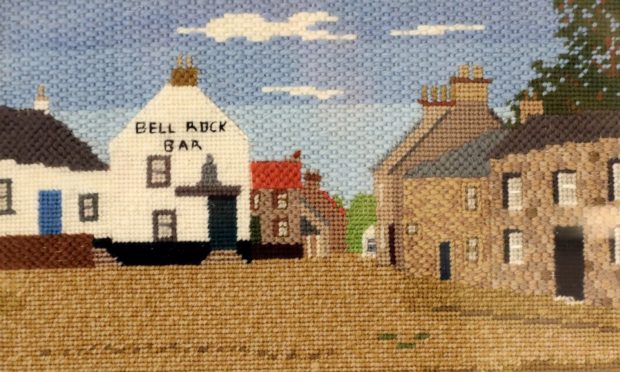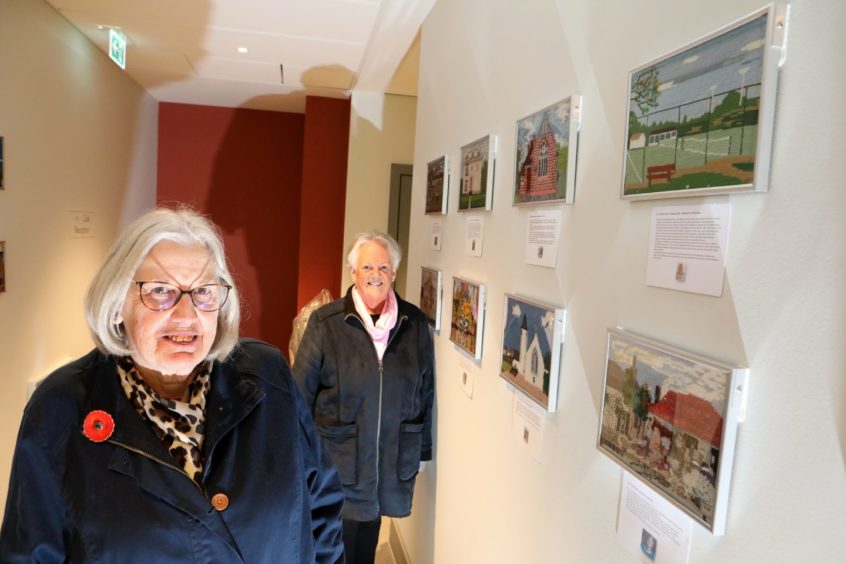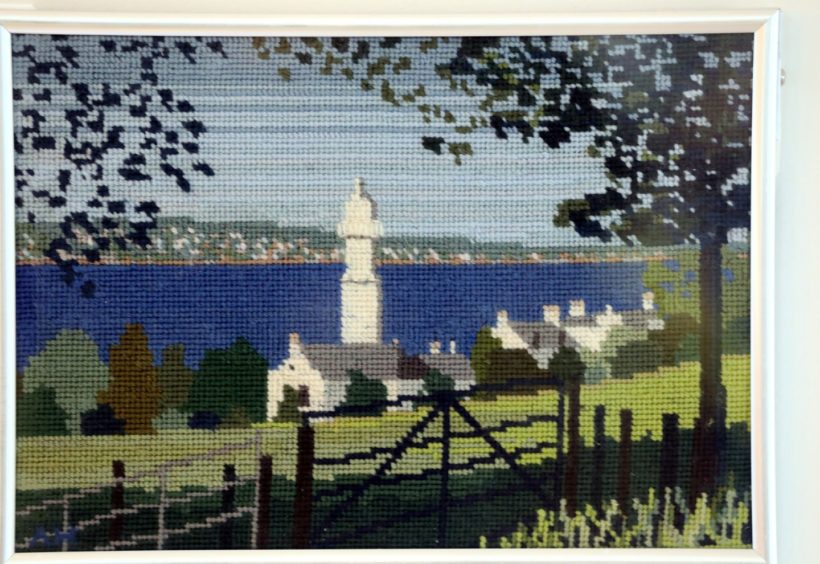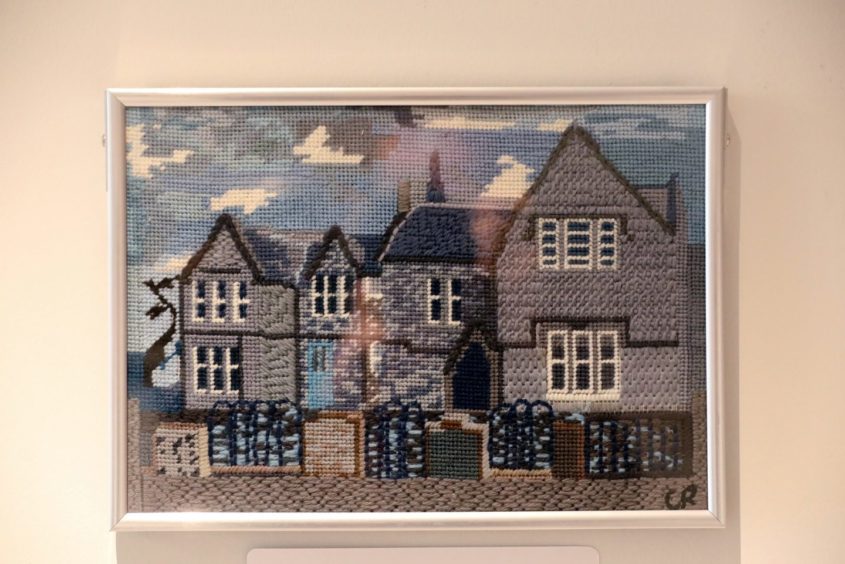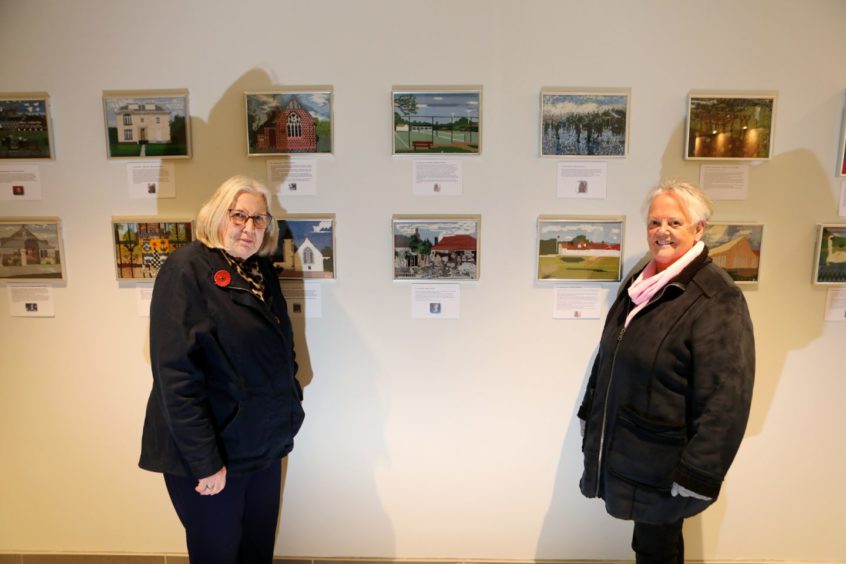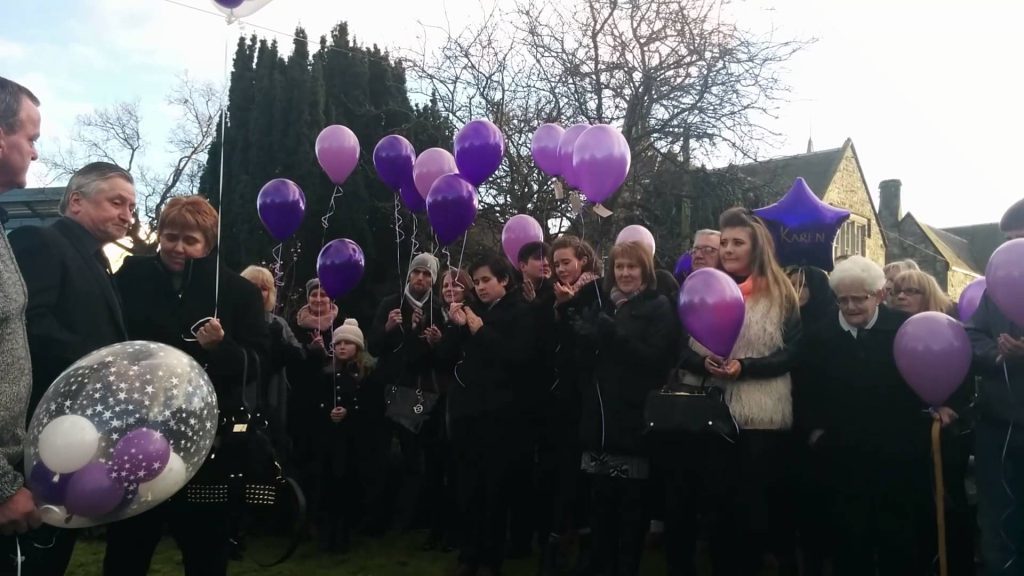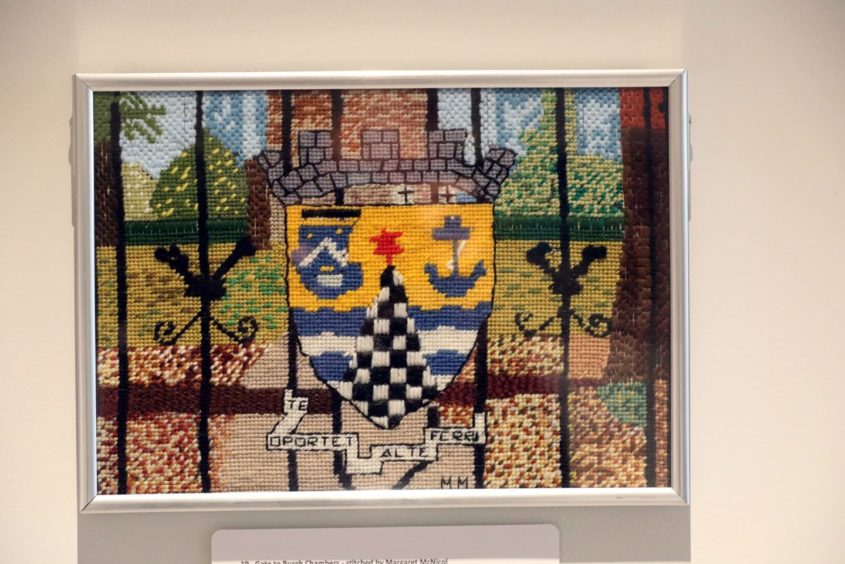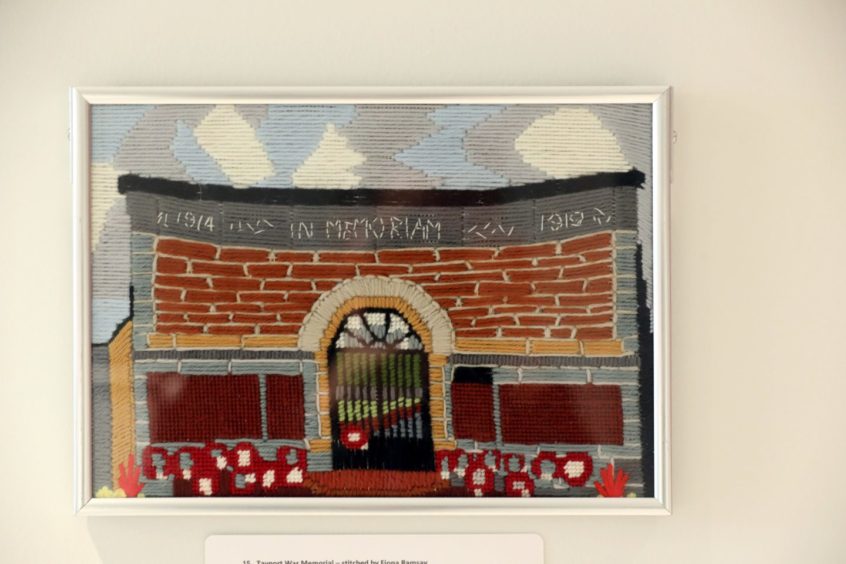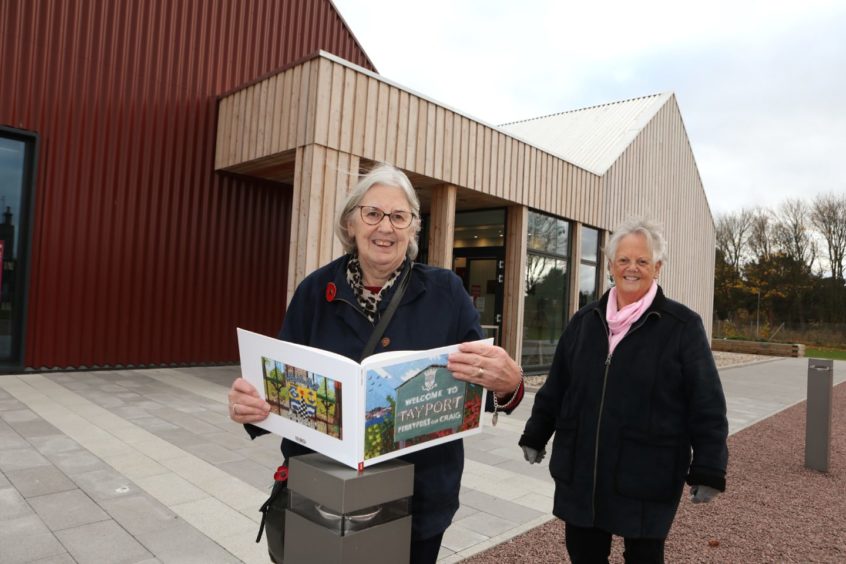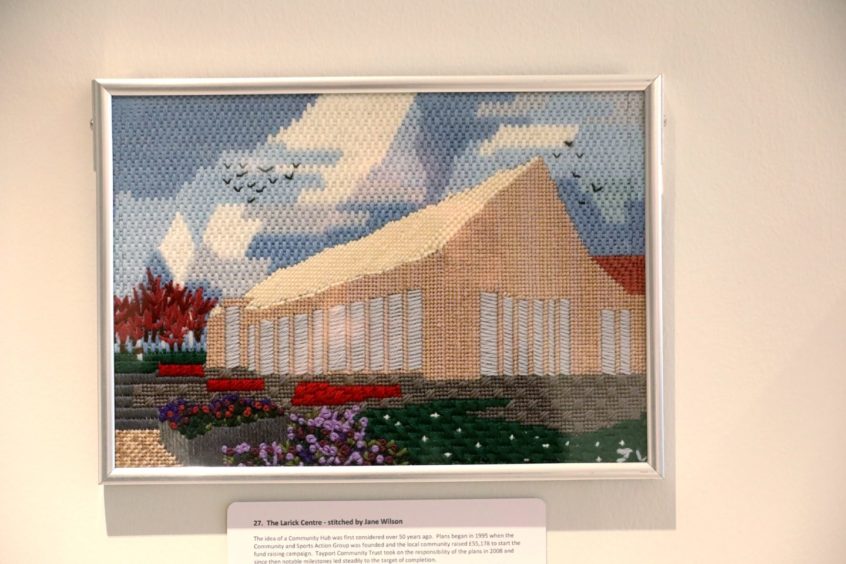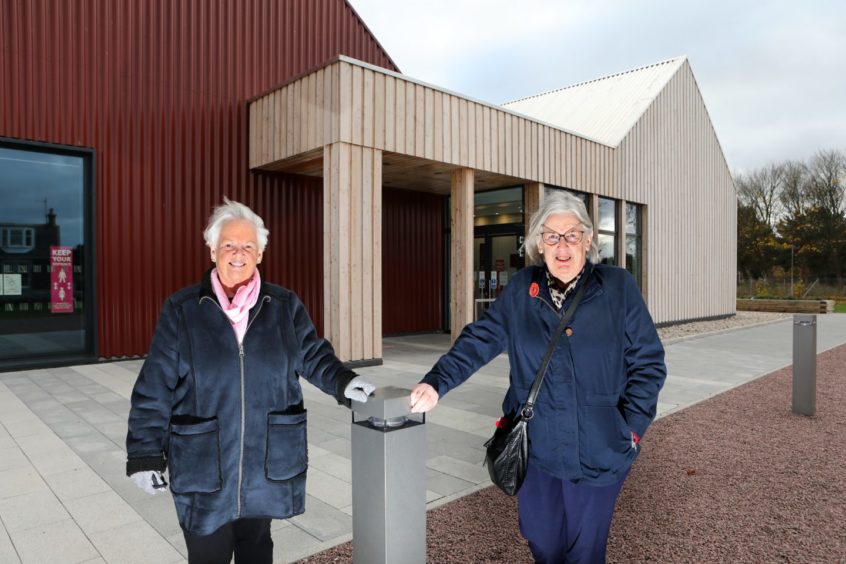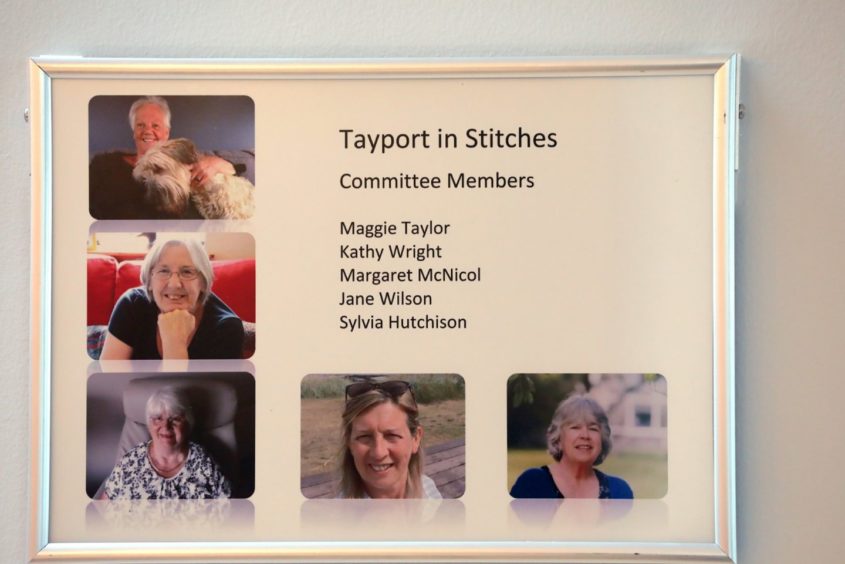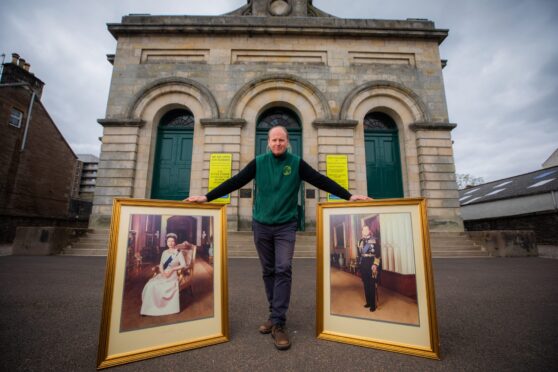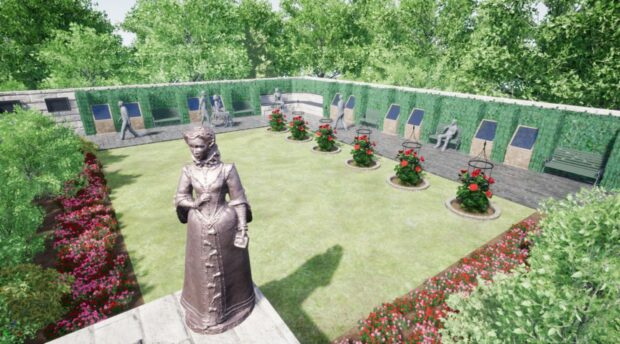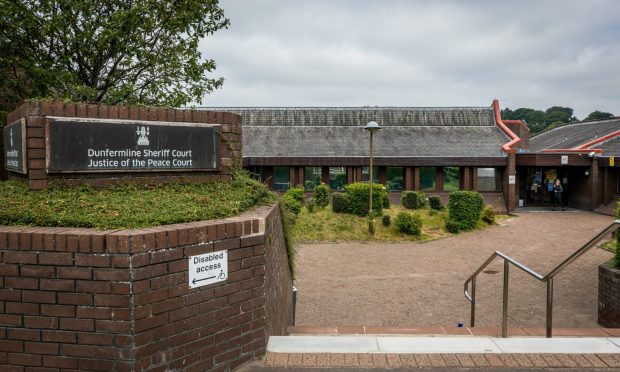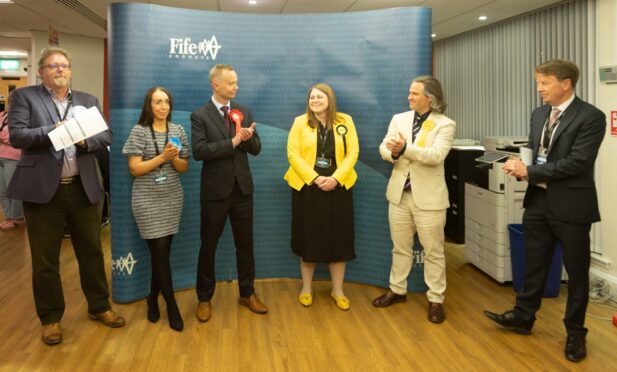Michael Alexander hears how a community initiative to turn well known scenes in Tayport into tapestries is proving to be a hit at the town’s recently opened Larick Centre.
When Tayport women Maggie Taylor and Margaret McNicol were involved in Newport-on-Tay’s History Group’s successful ‘From Bridge to Bridge’ tapestry project a few years ago, it was suggested that a similar project might be possible in Tayport.
Maggie, along with Kathy Wright and Margaret, organised a meeting in Tayport’s Harbour Café to see if there was any interest.
At this meeting in March 2019, there were over 30 interested sewers and suggestions for suitable Tayport scenes that could be turned into xcross-stitched tapestries were collected.
Now, more than 18 months later, socially-distanced visitors to Tayport’s recently opened Larick Centre can enjoy a permanent display of the tapestries which depict some of Tayport’s most distinctive and recognisable buildings, alongside community scenes rooted in history.
What do the tapestries feature?
They range from a tapestry of Scotscraig Golf Club and Tayport FC’s CanniePairt to the Curling Pond and Bell Rock Tavern.
The grave of the Unknown Bairn is also featured as are local churches, the war memorial and tennis courts.
Beneath each tapestry is a photo of each stitcher and very informative words about the culture and history of each site that were compiled by committee member Sylvia Hutchison.
In an interview with The Courier at the Larick Centre, Maggie– who was a local Fife councillor from 2000 until 2017 – explained how contributors ranged from experienced stitchers to people with virtually no experience.
“A successful application to the Tayport Locality Fund enabled the group to purchase canvas and threads and Kathy sourced and produced the grids that stitchers would use to help them create their tapestry and made up packs containing canvas, printed charts and photographs were produced for distribution at the first meeting of the group,” she said.
“Monthly meetings were held where members could get help or inspiration, top up on threads or just chat and exchange ideas with other members.
“There was flexibility, however, when it came to people either following the instructions or stitching freehand.
“The Covid-19 lockdown coincided with the proposed finish date but the completed tapestries were handed in and the committee used their time in isolation to frame them.”
How were the tapestries made?
Kathy sourced the grids that stitchers would use to help them create their tapestry while her son also took photographs of the views that were being copied.
There was flexibility, however, when it came to people either following the instructions or stitching freehand.
“There are so many people to thank for their help with this project – especially those who took wonderful new photographs of Tayport and those who loaned us their old postcards and photographs,” she said.
“Thanks also to Newport History Group for showing us what we needed to get started and for donating their unused threads and Sylvia Hutchison who did so much research on the history of the scenes depicted in the tapestries.
“Thanks also to Jaq Wright for all the technical help and to Jane Wilson who joined the committee later in the project.
“But a special thank you must also go to all the stitchers, some of whom had never stitched anything like this before. We had some very talented people in this group!”
A very hands-on experience for all!
As well as being on the Tayport in Stitches committee, Maggie and Kathy also both took part by creating tapestries themselves.
Maggie’s input was a poignant stitching of Karen’s Garden – the memorial garden opened in Castle Street by Frank and Allison Dewar in January 2008 in memory of their daughter Karen who was murdered in Tayport, aged 16, in January 2005.
The garden was developed as the result of fundraising launched in the wake of Karen’s death – the Karen Dewar Memorial fund exceeded its target figure of £50,000.
Students from Elmwood College in Cupar planted predominantly Lilac plants – Karen’s favourite colour.
Artwork from children at Tayport Primary School was incorporated into the ornate fence.
Newburgh-based sculptor Gail van Heerden designed the bronze centrepiece sculpture entitled ‘Free Spirit’.
As someone who helped instigate the garden while a councillor, it was a tapestry choice close to Maggie’s heart.
Kathy, meanwhile, stitched her first choice – a the ‘Welcome to Tayport’ sign, the tapestry which is used to introduce the Tayport in Stitches display.
There are two of these signs one at each end of the town.
When the previous signs were falling into disrepair many years ago the new ones were made by local joiner William Little and painted by the late Eric Thompson.
The signs include the Tayport arms which were granted on June 12, 1953, and registered in honour of the coronation of Queen Elizabeth II.
Margaret McNicol completed the tapestry of the gates to the Burgh Chambers.
These gates were created in 1958 by Margaret’s Father – John Cooper – the local blacksmith.
The Latin motto ‘Te Oportet Alte Ferri’ which was composed by the Scottish poet and scholar Professor Douglas Young, grandson of the first provost, is a pun on the fact that the town was both a Tay port and a Tay ferry – its meaning is ‘it behoves thee to bear thyself loftily’.
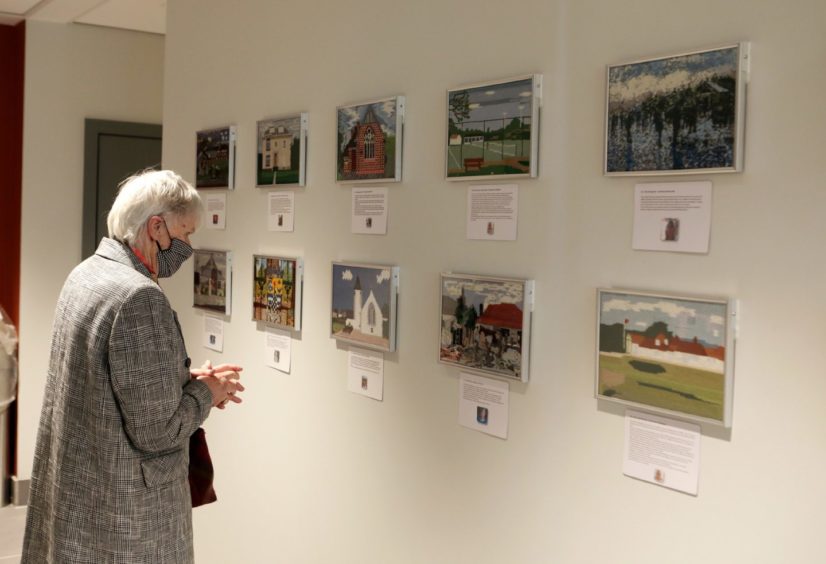
Visitors can learn how Tayport was originally known as Partan Craig before it received its burgh charter in the name of Ferryport on Craig in 1598.
In the 1850s the Edinburgh Perth and Dundee railway company established a railway service from Edinburgh to Aberdeen passing through Ferryport on Craig.
They used the simple name of Tayport for the town and overtime this replaced the more cumbersome Ferryport on Craig.
Kathy had done some sewing in the past but “nothing like this”.
While some of the scenes – such as Tricia Irwin’s Tayport Station – are historic, others are very up to date and have been displayed in such an order that it feels as if the viewer is taking a walk around Tayport with the Tayport in Stitches team.
Celebrating Tayport’s new Larick Centre
The Larick Centre itself is also featured in a tapestry by Jane Wilson, and Maggie said it was very fitting that the long awaited community hub was the permanent home to the display.
The idea of a community hub was first considered over 50 years ago.
Plans began in 1995 when the Community and Sports Action Group was founded and the local community raised £55,178 to start the fundraising campaign.
Tayport Community Trust took on the responsibility of the plans in 2008 and since then notable milestones led steadily to the target of completion.
In 2016 the Shanwell Road site was purchased with help from the Scottish Land Fund and the following year the derelict former steel fabrication factory was demolished.
Tayport Community Trust put forward a successful bid to the Big Lottery Fund for £1.2 million and then they worked to raise the further £1.1 million needed.
After much fundraising the community raised a total of £2.6 million which allowed them to meet the increased capital costs of the project.
The multi-purpose centre is owned and managed by trustees on behalf of the community of Tayport.
The design evolved through extensive consultations with the community and user groups.
The people of Tayport were asked for suggestions for a name for the centre and when it was officially opened in 2020 the centre was named the Larick Centre – the original name for Tayport’s Pile Light.
Maggie added: “When we started the Tayport in Stitches project, at a time when the Larick was getting built, I had it in mind that it could become the permanent home of the collection.
“We wanted the stitches project to ‘finish’ rather than someone having to store them and get them out to display every time.
“We are all absolutely delighted that they are now on display. We’re just so sorry that (due to Covid) we weren’t able to have an official opening.
“We’d have loved a picture of all the ladies here together with the tapestries.
“But the Larick itself continues being extremely important right now, because people can’t have anyone in their houses. It’s a place just to meet people and enjoy the coffee. “It’s so well used already and so important as a general resource for the town.”
Notecards are available
Tayport in Stitches have also printed out a few notecards for the Larick to sell.
These have been very popular, and there’s also been a lot of public feedback about the tapestries themselves.
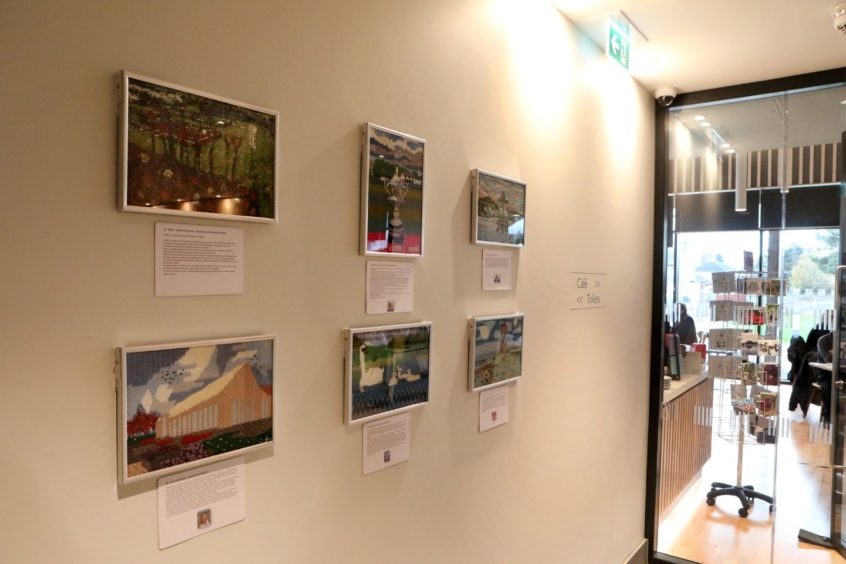
“Someone wanted to buy one because their father stayed in such and such a house years ago,” said Maggie, “or people are saying they didn’t know anything about such and such in Tayport.
“We don’t expect people to read all the information beneath the pictures on any one day.
“But if people are visiting regularly, they can pick bits out when they are passing with the knowledge that they are there on permanent display.”
